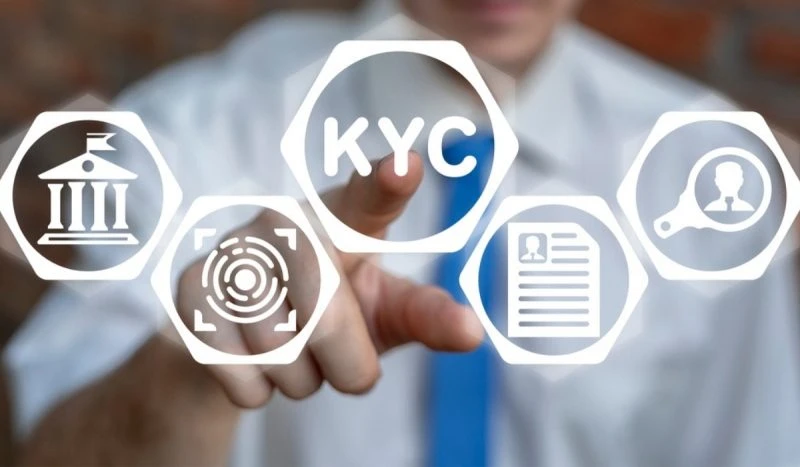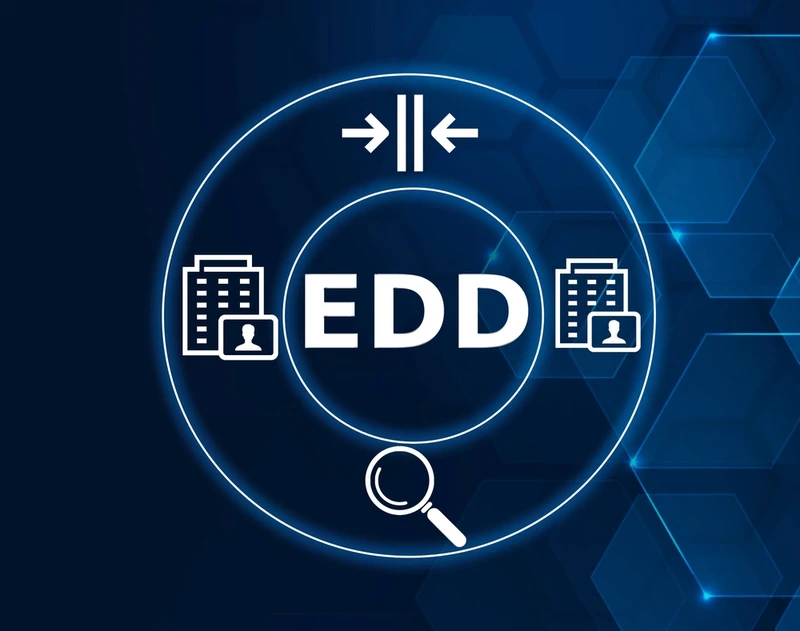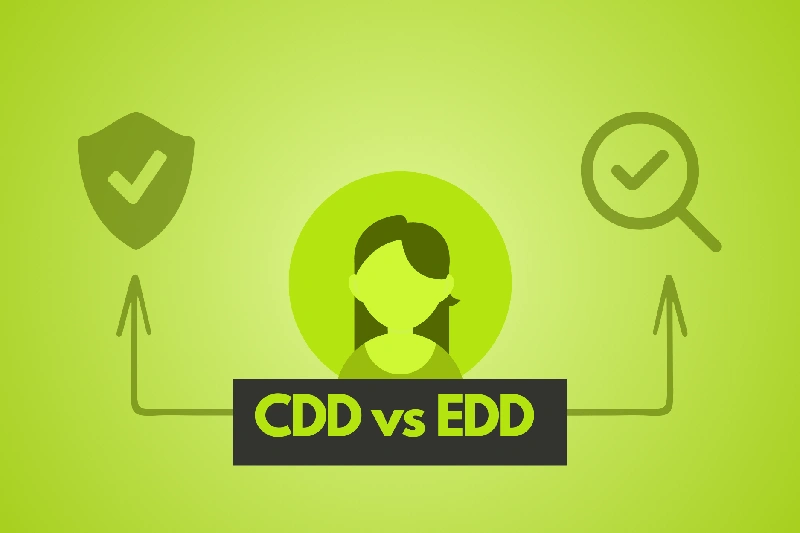In today’s fast-evolving Fintech ecosystem, staying compliant isn’t just a legal necessity—it’s a trust signal. As regulators tighten oversight in 2025, KYC requirements have become a core pillar for Fintech startups looking to scale securely and responsibly. This article explains KYC in detail, including what is needed and how companies may streamline the procedure while preventing financial crime.
What Is KYC And Why It Matters For Fintech Startups
Before providing financial services, Know Your Customer (KYC) is the required procedure for confirming a customer’s identification. For fintech businesses, it’s a defense against financial crime, fraud, and reputational risk, not just a way to check a box.

The Link Between KYC and AML Compliance
AML (Anti-Money Laundering) is the larger framework designed to identify and stop financial crimes like fraud, money laundering, and terrorism financing, whereas KYC concentrates on identification verification.
Consider KYC as a first line of defense, as it provides trustworthy customer data that flows into AML processes. Stated differently, KYC is a subset of AML compliance, and to lower systemic risk in the financial system, the two function together.
Why Regulators Prioritize KYC In Fintech
Fintechs are susceptible to fraud and money laundering, as they often operate at the intersection of speed and innovation. Because of this, regulators around the globe increasingly consider strong KYC procedures to be crucial.
Regulators want proof that startups are appropriately managing risk exposure, from protecting digital wallets to stopping synthetic identity fraud. In 2025, international financial regulations like the U.S. FinCEN standards and the EU’s AMLD6 still require KYC compliance at every stage of the customer lifecycle.
Core KYC Documentation Requirements In 2025
KYC isn’t one-size-fits-all. The documents you collect will depend on the type of customer, the services you offer, and the level of risk involved. Let’s break it down:

For Individual Customers
Fintechs must collect and verify:
- Government-issued ID (passport, driver’s license)
- Proof of address (utility bill, bank statement)
- Biometric data (for digital verification)
- Selfies or liveness checks (to prevent identity fraud)
For Business/Corporate Customers (KYB)
Know Your Business (KYB) is the corporate cousin of KYC. Required documents include:
- Business registration certificate
- Tax identification number (TIN)
- Ultimate Beneficial Ownership (UBO) information
- Corporate structure documentation
- Proof of operating address
When Additional Documentation Is Needed (e.g., EDD, high-risk flags)

EDD (Enhanced Due Diligence) is activated when a customer is identified as high-risk (such as PEPs or suspicious geographic areas). This could consist of:
- Source of funds declarations
- Additional financial statements
- Legal opinions for complex structures
Understanding The KYC Process For Fintechs
What precisely occurs when a user registers? This is a condensed summary of the 2025 KYC procedure steps:
Identity Verification & Document Collection
The first checkpoint is this one. Startups gather and validate personal information using eKYC technologies, OCR, and AI-based ID verification. Onboarding friction is lessened using real-time API checks.
Customer Due Diligence (CDD) vs. Enhanced Due Diligence (EDD)

- CDD is the standard process for verifying low-risk customers.
- EDD kicks in for higher-risk individuals and requires deeper investigation and document collection.
Startups need to understand when, in light of dynamic risk assessments, to escalate from CDD to EDD.
Ongoing Monitoring and Risk Assessment
KYC isn’t a “one-and-done” process. Fintech must constantly watch how their customers behave, report any odd activity, and frequently reevaluate risk, particularly when laws or customer profiles change.
Transaction Monitoring: How It Complements KYC
Transaction monitoring tracks the actions of users after they are onboarded. It detects questionable trends, such as quick money transfers, odd geographic locations, or cryptocurrency conversions, all of which support your AML plan.
KYC Best Practices For Fintechs In 2025

Despite regulatory pressure, Fintechs benefit from efficient KYC in terms of increased trust, decreased fraud, and streamlined operations. This is how to do it correctly:
- Adopt a Risk-Based Approach: Every customer is not equally dangerous. A risk-based KYC approach streamlines onboarding for low-risk profiles while allowing you to concentrate more resources on high-risk customers. Automate risk scoring with AI-powered solutions.
- Avoid Common KYC Mistakes: Avoid typical KYC blunders including presenting insufficient documents, depending on laborious manual verifications, skipping regular monitoring, and not rescreening people following profile modifications.
- Optimize Onboarding Without Sacrificing Compliance: Make use of AI-powered onboarding processes that preserve verification accuracy while lowering friction. Make use of technologies such as liveness detection, facial recognition, and smart forms.
- Monitor, Rescreen, and Stay Audit-Ready: Regular KYC rescreening is essential, particularly in the wake of geopolitical events or legislative changes. Make sure your system records each identity touchpoint, automate reporting, and maintain audit trails.
How KYC Helps Prevent Fraud And Strengthen Fintech Trust

Know Your Customer (KYC) is a trust-building tool, not merely a regulatory checkbox. When done correctly, it conveys integrity to users, discourages bad actors, and increases the credibility of your fintech. Here’s how:
- Detects and blocks fraud early by verifying identities before risk enters your ecosystem.
- Builds user confidence with transparent onboarding and clear security protocols.
- Reinforces regulatory compliance, reducing the risk of penalties and reputational damage.
- Shows commitment to customer safety, making users more likely to engage long-term.
- Supports sustainable growth by attracting partners, investors, and users who value trust.
- A well-designed KYC process is more than compliance—it’s your brand’s promise of security and integrity.
Simplify Your Fintech KYC Journey With Metti
Navigating KYC in today’s Fintech landscape can feel overwhelming—but it doesn’t have to be. Metti IRA, a subsidiary of Metti Group Holdings, is purpose-built to support Fintech startups with smart, scalable KYC and AML compliance solutions.
With features like transaction monitoring, regulatory reporting, AI-driven risk assessments, and smooth digital onboarding, Metti IRA enables your Fintech to maintain complete compliance without sacrificing user experience. Your team can focus on building trust, boosting growth, and producing innovation at scale by letting Metti IRA handle the complexities.
CONTACT
